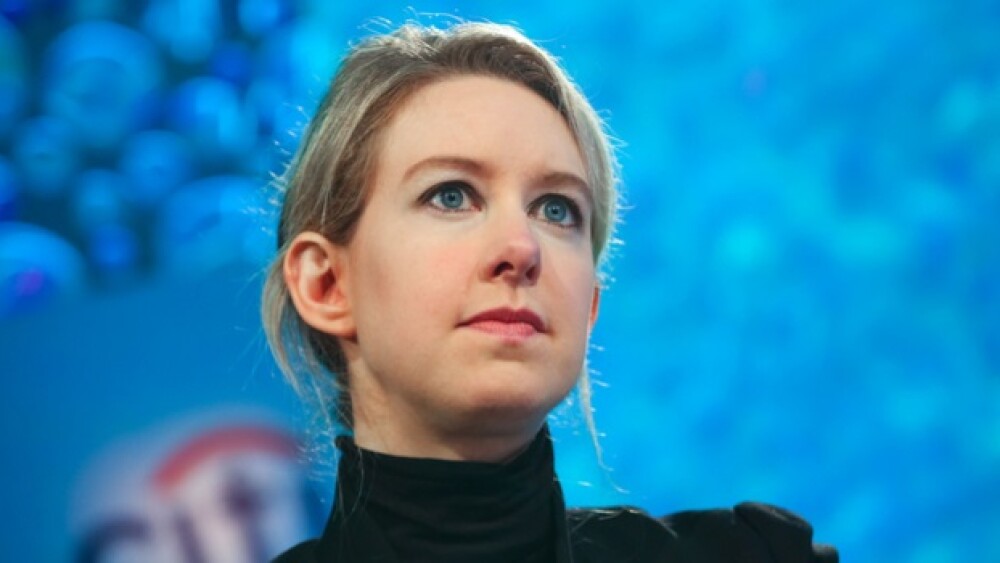As a student at a private school in Houston, Elizabeth Holmes had a reputation for being determined to accomplish her goals, no matter if she came in dead last. She was also notoriously private about her life.
Krista Kennell / Shutterstock.com
As a student at a private school in Houston, Elizabeth Holmes had a reputation for being determined to accomplish her goals, no matter if she came in dead last. She was also notoriously private about her life.
In the latest “The Dropout” podcast on ABC, Megan Long, a former classmate of Holmes at St. John’s School, described the Theranos founder as dogged in her determination. On the podcast, which has documented the rise and fall of Theranos, Long said one memory clearly stood out about Holmes from so many years ago. It was when Holmes was a distance runner on the school’s track team. She consistently came in last in races she ran, but she was always determined to finish and didn’t care what others thought.
Additionally, Long described Holmes as “disconnected” from the other girls at the school. The future billionaire, who has since lost the bulk of her fortune, kept to herself and focused on her studies. Those studies included learning Mandarin and programming skills, Long said, according to the podcast. That level of guardedness and privacy was maintained while she helmed Theranos. The company was known for not sharing data regarding its blood-testing products, even as Holmes (allegedly fraudulently) touted the success of the system.
Once Holmes graduated high school and left for Stanford that was the last those who knew her in Texas heard from her. Long said no one knew what she was up to until she appeared on the cover of Forbes Magazine in 2014.
That article, called “Bloody Amazing,” described Holmes time at Stanford, her founding of Theranos and her proclaimed goal of disrupting blood-testing services. Long said she and others were amazed and proud of Holmes’ accomplishments since leaving Houston.
That pride became shock when fraud charges were leveled at Holmes and her Theranos colleague Sunny Balwani.
Both Holmes and Balwani have pled not guilty to the criminal charges filed against them. The criminal fraud charges allege the two engaged in a multi-million dollar scheme to defraud investors, and a separate scheme to defraud doctors and patients. According to the indictment, Holmes and Balwani used advertisements and solicitations to encourage and induce doctors and patients to use Theranos’ blood testing laboratory services, despite the fact that Holmes and Balwani knew the company’s proprietary device was “not capable of consistently producing accurate and reliable results for certain blood tests,” the government said.
While Holmes has pled not guilty to the criminal charges, last year, after the U.S. Securities and Exchange Commission brought charges against the duo, she agreed to pay a $500,000 fine.
The criminal case has not yet gone to trial. If convicted, Holmes could face a maximum sentence of 20 years in prison and a fine of $250,000 for each count of wire fraud and for each conspiracy count, ABC said.
Preet Bharara, former U.S. Attorney for the Southern District of New York, has had experience litigating high-profile fraud cases. He told ABC that the proof against Holmes is “overwhelming” and said he believes she will be found guilty. Bharara said during the trial it will be “important for Holmes to show that she was trying to make the Theranos technology work as she promised.” While that will not likely change the mind of the jury, he said if she can show positive intent to accomplish something revolutionary it will only be a “minor point in her favor,” ABC said.





